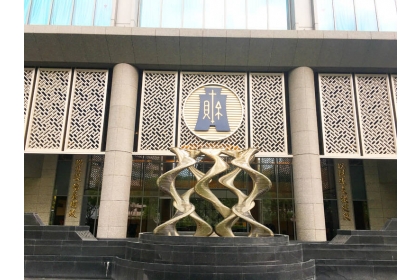Two state sites to become carbon sinks TIMBER TENDER: Ninety-two hectares of government land are to be bid on to create carbon sinks in eastern Taiwan in an effort to meet government zero-carbon goals
2023-12-04
興新聞張貼者
Unit秘書室
1,033
Suroce:2023-12-4/Taiwan News
The finance ministry’s National Property Administration (NPA), which manages most of Taiwan’s state lands, said it would be working with National Chung Hsin University (NCHU) in central Taiwan to develop 92 hectares of underused state land into carbon sinks, following years of research by the university in that field.
Under the pilot project, tenders would be put out for bids to grow forests on 20 hectares of state land in Yilan County’s Sansing Township (三星) and 72 hectares in Taitung County’s Chihshang Township (池上), an NPA official said.
The 20 hectares in Yilan were formerly a sand mining site, while the designated land in Taitung was once a rail yard, the official said, adding that neither of the sites is suitable for agriculture due to the soil quality.
The forest carbon sinks from which carbon credits are to be gained have to be artificially created rather than grown naturally, NCHU professor Liu Wan-yu (柳婉郁) said.
Furthermore, the cultivated forests cannot be located in areas where natural forests previously existed, which means natural forests cannot be cut down to grow new ones, if carbon credits are to be earned, she said.
The lands allocated by the NPA for use as carbon sinks comply with international regulations for earning carbon credits, Liu said.
When the pilot project is launched, it would be left up to the successful bidders to decide what kinds of trees should be planted, she said, adding that she would recommend species that have a high carbon and pollutant absorption capacity.
The successful bidders would rent the land from the NPA and would retain 90 percent of the carbon credits, while the other 10 percent would go to the government, the NPA said.
NCHU is to help oversee the project, monitor the forests’ absorption of carbon and involve its students in the work so that it can become a learning ground for them, Liu said.
She said that enterprises have started to see forests as a means of achieving their environmental, social and corporate governance goals and as an opportunity to earn carbon credits.
In earlier years, it would have been unthinkable for enterprises to bid to plant forests, as “no one would have wanted a piece of land just to grow trees,” Liu said, adding that the tenders for the carbon sink project are to be put out next year after the Lunar New Year holiday.
Building carbon sinks is one of the 12 key components of Taiwan’s carbon reduction plan, called Pathway to Net Zero Carbon Emissions in 2050, put forth by the National Development Council last year.
The finance ministry’s National Property Administration (NPA), which manages most of Taiwan’s state lands, said it would be working with National Chung Hsin University (NCHU) in central Taiwan to develop 92 hectares of underused state land into carbon sinks, following years of research by the university in that field.
Under the pilot project, tenders would be put out for bids to grow forests on 20 hectares of state land in Yilan County’s Sansing Township (三星) and 72 hectares in Taitung County’s Chihshang Township (池上), an NPA official said.
The 20 hectares in Yilan were formerly a sand mining site, while the designated land in Taitung was once a rail yard, the official said, adding that neither of the sites is suitable for agriculture due to the soil quality.
The forest carbon sinks from which carbon credits are to be gained have to be artificially created rather than grown naturally, NCHU professor Liu Wan-yu (柳婉郁) said.
Furthermore, the cultivated forests cannot be located in areas where natural forests previously existed, which means natural forests cannot be cut down to grow new ones, if carbon credits are to be earned, she said.
The lands allocated by the NPA for use as carbon sinks comply with international regulations for earning carbon credits, Liu said.
When the pilot project is launched, it would be left up to the successful bidders to decide what kinds of trees should be planted, she said, adding that she would recommend species that have a high carbon and pollutant absorption capacity.
The successful bidders would rent the land from the NPA and would retain 90 percent of the carbon credits, while the other 10 percent would go to the government, the NPA said.
NCHU is to help oversee the project, monitor the forests’ absorption of carbon and involve its students in the work so that it can become a learning ground for them, Liu said.
She said that enterprises have started to see forests as a means of achieving their environmental, social and corporate governance goals and as an opportunity to earn carbon credits.
In earlier years, it would have been unthinkable for enterprises to bid to plant forests, as “no one would have wanted a piece of land just to grow trees,” Liu said, adding that the tenders for the carbon sink project are to be put out next year after the Lunar New Year holiday.
Building carbon sinks is one of the 12 key components of Taiwan’s carbon reduction plan, called Pathway to Net Zero Carbon Emissions in 2050, put forth by the National Development Council last year.


